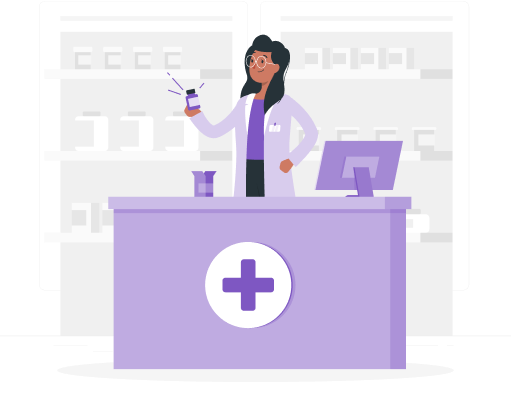Product Information
Composition:
Darbepoetin alfa (r-DNA Origin) .......................40 mcg
Excipients:
sodium phosphate
monobasic monohydrate,
sodium phosphate dibasic
anhydrous, sodium chloride,
polysorbate 80, water for
injection.
Storage:
Store between 2 to 8°C. Do not freeze.Unique Identification Code:
8901148224612Manufacturing License Number:
ML: 01/RR/AP/2004/V/GAbout Chronic kidney disease (CKD)
Chronic kidney disease (CKD) is a medical condition that is long-term (viz. "chronic") where the kidneys are unable to function properly. But even when the kidneys are affected, very often, they will continue to function to some extent. As you may recall, even people with just one kidney are still able to function normally. This is why CKD symptoms may not be seen until the disease has become much worse. Over time, if this disease is not treated and controlled, it could worsen to kidney failure where the patient may need a kidney transplant or may become dependent on dialysis.
- Diabetes: High sugar levels in the blood affect the kidney's filtration system.
- High blood pressure (hypertension): This increases the pressure in the kidney's blood vessels which affects the way the kidney filters the blood.
- Heart disease
- Obesity
- Being exposed to certain drugs (e.g. lithium, nonsteroidal anti-inflammatory drugs, vancomycin) and chemicals (e.g. lead, mercury, arsenic).
- Having a family member with CKD.
- Being older.
- Having a urinary tract infection or an obstruction in the lower urinary tract.
- Having an autoimmune disorder (where the immune system wrongly recognizes the cells of the body to be "foreign" and attacks them).
Very often, patients with chronic kidney disease (CKD) may find it difficult to walk up a flight of stairs or perform their everyday activities, or they may often feel weak and tired.
One of the reasons for this could be anemia.
Anemia is a medical condition (which can also be caused due to other reasons besides CKD), where a person may have lesser than the normal number red blood cells or lower levels of the protein "hemoglobin". Red blood cells and hemoglobin help to carry oxygen from the lungs to the different parts of the body – this important function gets affected in anemia.
A patient with CKD may begin to develop anemia when kidney function starts dropping in the early stages of CKD; this gets worse as the disease progresses.
Why do people with CKD develop anemia?
The kidneys produce a hormone called erythropoietin (EPO) which instructs the bone marrow to increase production of red blood cells. But when the kidneys are damaged, as in CKD, they are unable to make sufficient quantities of this hormone. This leads to fewer blood cells in the body, which results in anemia.
Sometimes, people with CKD develop anemia because their diet contains lower levels of folic acid, iron or vitamin B12 (which are necessary to make hemoglobin), or because they lose some blood during dialysis.
Many patients with CKD suffer from anemia. About 51% of those diagnosed with stages 1–3 of CKD (mild kidney failure), 55% of those with stage 4 CKD (moderate kidney failure) and 76% with stage 5 CKD (end-stage renal disease requiring dialysis) also have anemia.
A doctor usually suggests one or more of the following methods to treat anemia in patients with CKD:
- Iron supplements: Iron may be given either as a pill or injection.
- Nutrient supplements: Vitamin B12 and folic acid may be recommended.
- Blood transfusion: A red blood cell transfusion increases the number of these cells present in the blood.
- Erythropoiesis stimulating agents (ESA): Epoetin or darbepoetin injections may be recommended in certain cases.
Manage your CKD
Here are some of the ways you can do this:
- Eat healthy.
- Don't drink too much alcohol.
- Exercise regularly and stay physically active.
- Keep your blood sugar in check.
- Control your blood pressure.
- Go for check-ups: Many experts believe that people at a high risk for CKD should get screened after a certain age. Talk to your doctor to see if this is right for you.



